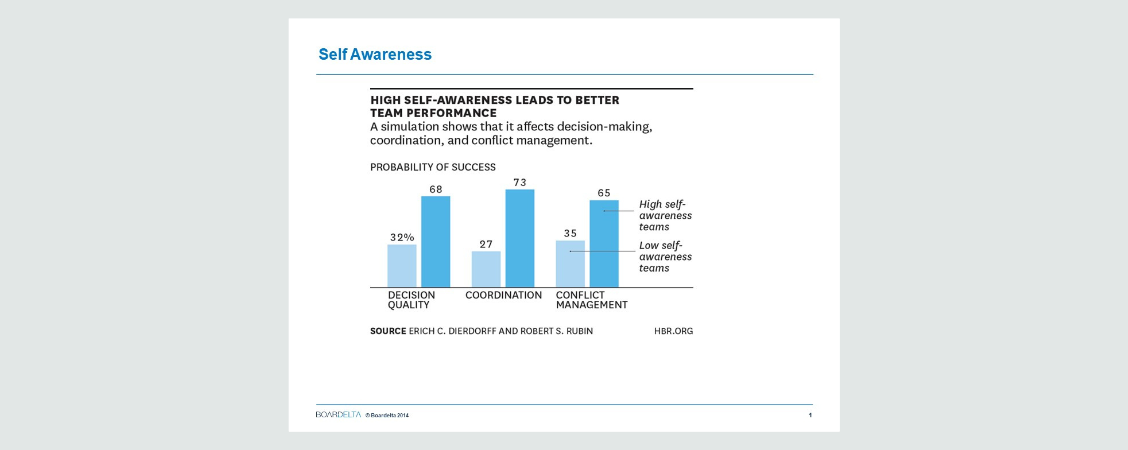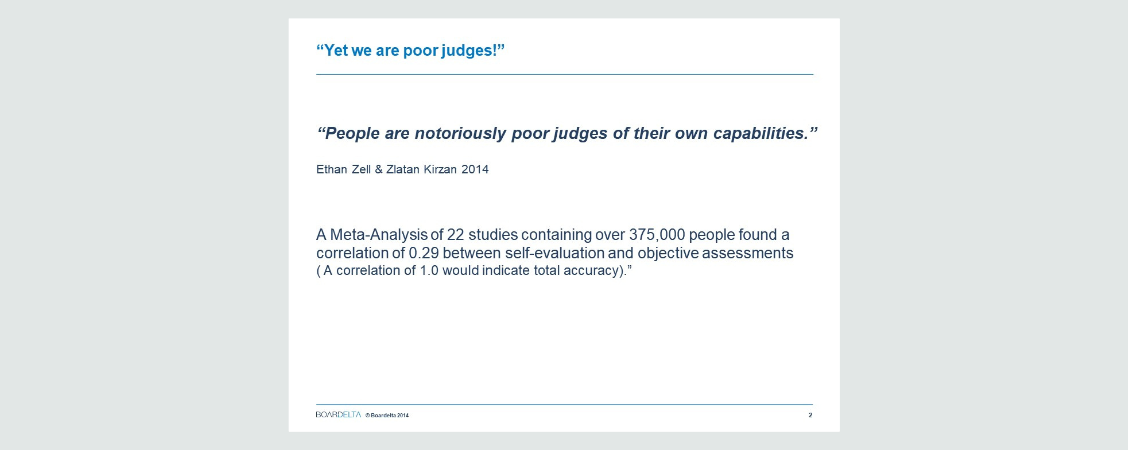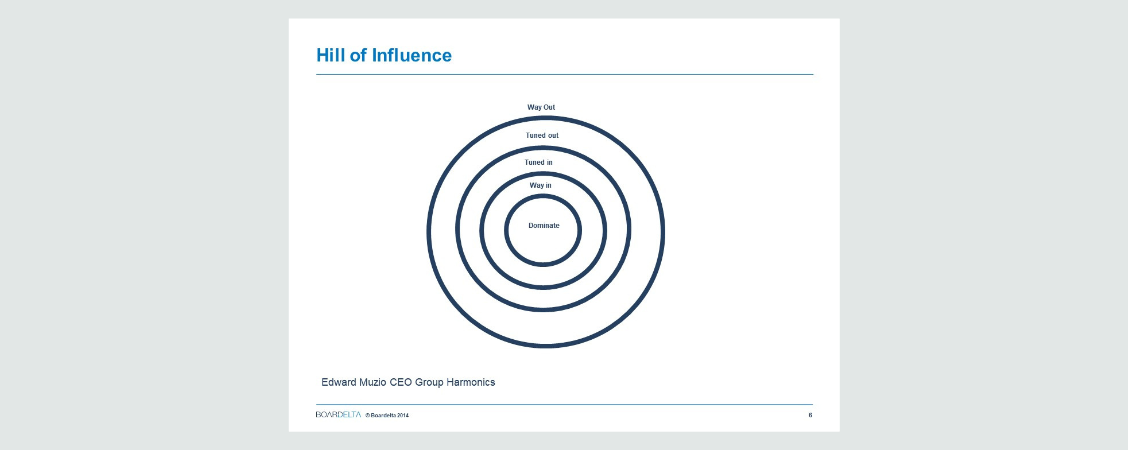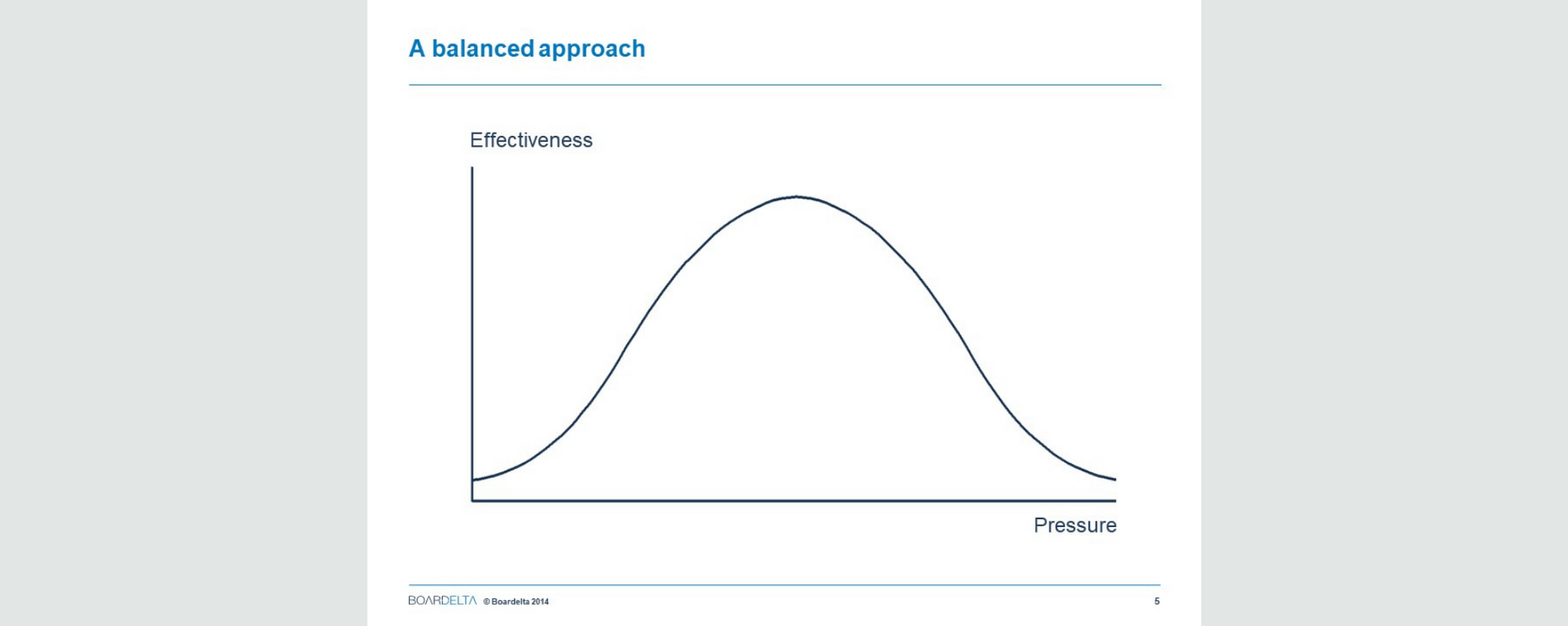Seven ways to become more self-aware and effective on your board

Board expert Patrick Dunne on the impact of self-awareness
Patrick Dunne is hugely experienced chair and expert in board skills and effectiveness, having worked for many years with and on boards across many sectors including business, charity and social enterprise, in the UK and overseas.
Patrick has long suspected a person’s levels of self-awareness can impact board performance and he’s recently been able to evidence this.
We wanted to speak to Patrick to find out what being self-aware means for school and trust governing board members, why it matters and how we might all get better at it.
Patrick, firstly what do we mean by self-awareness here?
Well you’re more self aware if you've got a good understanding of your strengths and weaknesses, so you’re not over confident about your strengths but equally you’re not underconfident either. You’re more self-aware if you’re constantly trying to get better at your soft spots or weaknesses. Finally you’re also more self-aware if you understand the importance of it and you’re keen to expand your knowledge on the subject.
In your book ‘Boards’, you explore the research into the importance of self-awareness. What evidence is there that it impacts teamwork and performance?
Well there are several useful studies here, the first was conducted by Harvard Business School. Researchers tested participants to discover how self-aware they were and then grouped them together into teams depending on their scores.Those with low self-awareness scores were put together, and similarly those with moderate or high self-awareness scores were put together. They were then divided into even smaller groups and given some coordinating tasks to complete, some decisions to take and conflicts to manage.
What the researchers discovered was that the people in the highly self aware groups were twice as effective, as the graph below shows.

Another useful study into self-awareness has revealed how rare it actually is.This research involved 375,00 people working in organisations which had appraisals and feedback processes, so you’d think they’d be positively biassed towards being more self-aware.
However it still only found a very slim correlation between people’s self evaluation and an objective assessment into their performance. An example might be someone who says, ‘I’m a real people person’ but in turn their employees consider them to be a monster and many leave. Or someone who says, ‘I’m an engaging leader’ but everyone who works for them thinks they just sit in the corner and tell people what to do.
So for many people, being self-aware is often the exception not the rule. This particular paper is quite long but I’ve pulled out one sentence which I think sums it up quite nicely.

So, how can we improve our self-awareness and how will it contribute to a more effective board? Patrick has the following suggestions.
1. Get ‘in the zone’ before a meeting
The more you think about ‘your game’ before an event, the better you do, but it’s not something we tend to think about for meetings. An athlete about to run 100 metres will probably put a lot of effort into getting ‘in the zone’ and yet for a board meeting we often just roll up.
Like a lot of people, I like variety and multi-tasking but I’ve realised that it’s actually really important to almost go through a decompression period before joining a meeting, some peace and quiet. When I’m ‘limbering up’ for a board meeting, I’ll make sure I’m thinking about the agenda, the mood, the outcomes we want to achieve - and then during the meeting, I’ll make sure I have minimal distractions. One of the challenges with video meetings is there are a lot more distractions. You’ve no idea sometimes what people are doing so I’ll make sure I’m never typing or distracted.
2. Reflect and support
I recommend setting aside some time at the end of your board meeting, without the executive present, in this case school and trust leaders, to reflect on how well the board did - did you achieve your outcomes? What went well and what didn’t go so well? If you do this every time, leaders won’t think it’s a session just to talk about them. This kind of reflection, just out of the heat of the moment, can be really valuable.
It’s also really important for chairs to support new members. Before a member’s first meeting I’ll ask what they’d like to get out of it and then involve them in the meeting if they’re a bit shy, saying ‘well Jo and I were chatting before the meeting and Jo made a really good point, Jo perhaps you’d like to share that?’
The day after the meeting, I’ll set up a call and ask for feedback. Whenever you ask for feedback, you tend to gain the right to give it too - so it’s also a chance to say, ‘well done you did really well at this’ or ‘maybe that comment jarred a bit with so-and-so’. If you start off with people expecting that kind of feedback, then it’s easier.
3. Listen to what people think as well as what they say
There are lots of cues you can use to be more self aware about how a meeting is going - especially in the days of video meetings.
I often refer to this little piece of advice my grandma gave me when I was a little boy, ‘It’s really important to listen to what people say, but it’s even more important to listen to what they think.’ If you can imagine what is in someone’s thought bubble, you’ll stand a better chance with that person. To this day, when I’m in a board meeting - I’m looking around the room and trying to work out what’s in the thought bubbles.
Often you learn more about the person speaking by looking at those other people in the room. Clearly you don’t want to not look at the person speaking all of the time but it’s useful to be aware of the reaction of others. When some people talk, others suddenly sit right back. That’s someone showing that they’re bored and disengaged, but they’re not doing it deliberately. Or if you watch someone who’s a bit frustrated, they’ll often lean forwards - it’s even more evident if you’re in the room with someone but you can pick it up online too.
4. Say more without speaking
You don’t want to be speaking too much if you're a chair. If you see someone who’s looking a bit concerned, there’s probably an 80% chance that if you just look at them, they’ll make a comment. I did this in a session last week - where I got 8 people to speak on Zoom without saying anything myself, just by using body language and moving forward.
There is also a technique that you may not be aware of called ‘the finger switch’. Again this is easier in a face-to-face meeting, but if someone doesn’t speak immediately and you notice they look concerned, if you look at them and open your hands in suggestion, they’ll probably speak. Even if it’s to say they’re fine with what’s being discussed.
5. Notice your level of participation
In the US, someone called Ed Muzeo has created a tool to help people understand how they’re participating and engaging in meetings. It’s called ‘the hill of influence’ and is based around a series of circles - with ‘dominate’ in the very centre, then as you move outwards it’s ‘way in’, ‘tuned in’, ‘tuned out’ or ‘way out '. You can ask fellow board members to reflect on which circle they were mostly in at the end of a meeting and even ask members to place each other.Most of the time you want to be ‘tuned in’. But if you’re ‘way in’ or ‘dominating’ you’ve gone too far. I find it hard myself sometimes when I’m enthusiastic and interested in things but to be really effective, no-one should be dominating and especially not the chair.

6. Build good quality relationships
There is a relationship between pressure and effectiveness. As you can see in this diagram below, on the left a leader is asleep and on the right they’re probably a headless chicken. In the middle, it’s pacey but effective, dynamic but under control. The place your headteacher or CEO wants to be in is in the middle. High performers tend to be just to the right-hand side of the middle, as they put themselves under a bit more pressure. But the interesting thing is when you look at what causes the pressure - what you find is it isn't the volume of work that causes the most pressure, it’s often the quality of relationships. If I’m a headteacher and I don’t have a good relationship with my chair of governors or trustees - it’s really hard. Or if my relationship with my deputy is not working, that’s a problem.

7. Be strategic, don’t get too involved
I call this ‘sliding down the slippery slope of helpfulness’. You have to assume it’s generally well-intentioned but sometimes board members just can’t stop themselves. You often see this with the finances of a small organisation when you have someone on a board who is really well qualified in finance. The finance officer of the organisation may not be trained to the same level, they don’t need to be and they might be under a bit of pressure. Instead of helping to develop that person so they can do that job better, or grow the organisation in a different way - this board member starts to lend a hand and all of a sudden they’re a part-time treasurer. In my experience, you either develop the person to the place they need or you learn they’re perhaps not right for the role - but you don’t want to be stepping in.
Learn more about board effectiveness in Patrick’s book ‘Boards’, which focuses on a model for effectiveness based upon people (as discussed in this blog!), purpose and process.
Readers of The Hoot can get a 20% discount on the book in both paperback and eBook versions by putting 'keysup20' in the discount code box at the checkout at www.governance.co.uk/books.


Post your comment
Comments
Catherine Hemsley 30 Mar 2023, 07:57 (13 months ago)
Really interesting article and very helpful especially concerning new members.
No one has commented on this page yet.
RSS feed for comments on this page | RSS feed for all comments